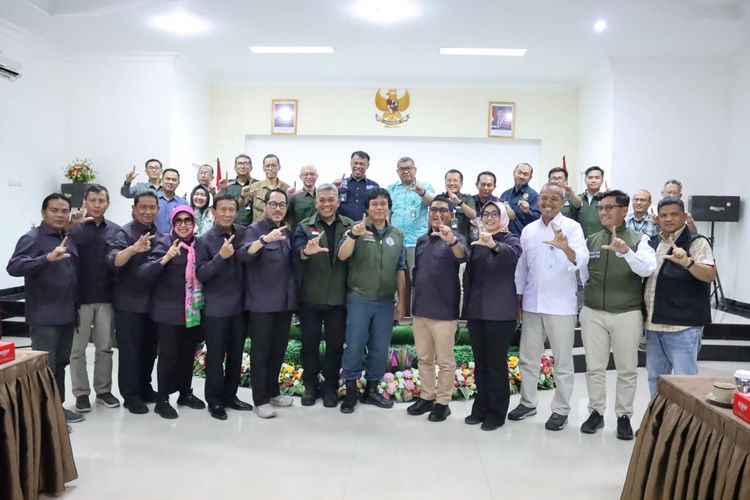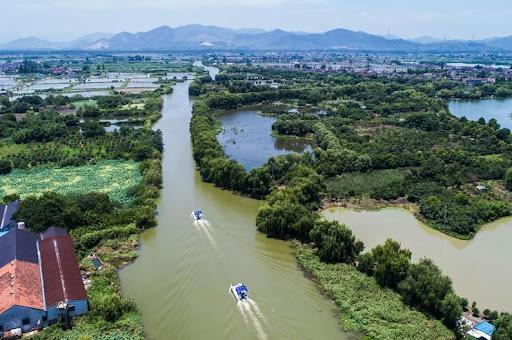Enviro News Asia, Riau — The Indonesian Ministry of Forestry, through its Directorate General of Forest Law Enforcement (GAKKUM), has initiated a large-scale forest recovery operation in Tesso Nilo National Park (TNTN), in collaboration with the Garuda Task Force and with full support from the Indonesian Parliament’s Commission IV.
This strategic intervention marks a significant step in the government’s national target to restore 3.7 million hectares of mismanaged forest areas.
The Garuda Task Force, formed under Government Regulation No. 5/2025 on Forest Area Enforcement, has begun operations in the 81,739-hectare Tesso Nilo. Alarmingly, around 40,000 hectares of the park have been illegally cleared and planted with oil palm.
The government aims to rehabilitate the area using a combination of labor-intensive restoration programs, ecosystem rehabilitation, and law enforcement.
“Tesso Nilo has been identified by the President as a priority area for forest recovery, with initial results to be presented on August 17, 2025,” stated Dwi Januanto Nugroho, Director General of GAKKUM.
He emphasized that all levels within the Ministry of Forestry are aligned in their commitment to restoring the park through a comprehensive and community-sensitive approach.
He also called for stronger cross-sectoral support to address the limited number of forest rangers tasked with protecting vast and threatened forest areas.
Ahmad Johan, Deputy Chair of Commission IV of the House of Representatives, welcomed the initiative and called for integrated policy frameworks, greater coordination, and engagement with local communities and stakeholders.
He also requested detailed plans for enforcement, community transition mechanisms, and audits of illegal land claims and palm plantations within the park.
Lawmakers from various political parties pledged support for the forest recovery efforts and stressed the need to prosecute large-scale land grabbers, as well as investigate the issuance of allegedly fraudulent land titles (SHM) linked to government officials.
The Garuda Task Force reported that TNTN is in critical condition. Elephant populations are declining, and over the past 20 years, widespread illegal activity by non-local settlers has degraded the park. Of the estimated 15,000 inhabitants in the area, only 10% are indigenous residents.
With 380 personnel stationed at 13 posts, the task force has installed gates, built security outposts, and initiated peaceful evictions. Some residents have begun leaving voluntarily.
The task force is also verifying 1,805 land ownership certificates reportedly issued within the park, in collaboration with the National Land Agency (BPN).
“Our goal is to establish a de facto state presence in forest enforcement. Legal proceedings will take place over the next two years, alongside humane rehabilitation efforts,” said the Commander of the Task Force.
The Riau Provincial Environment and Forestry Agency has expressed full support, preparing a post-enforcement recovery team and verifying residents to ensure a just and sustainable transition for affected communities. (*)
















